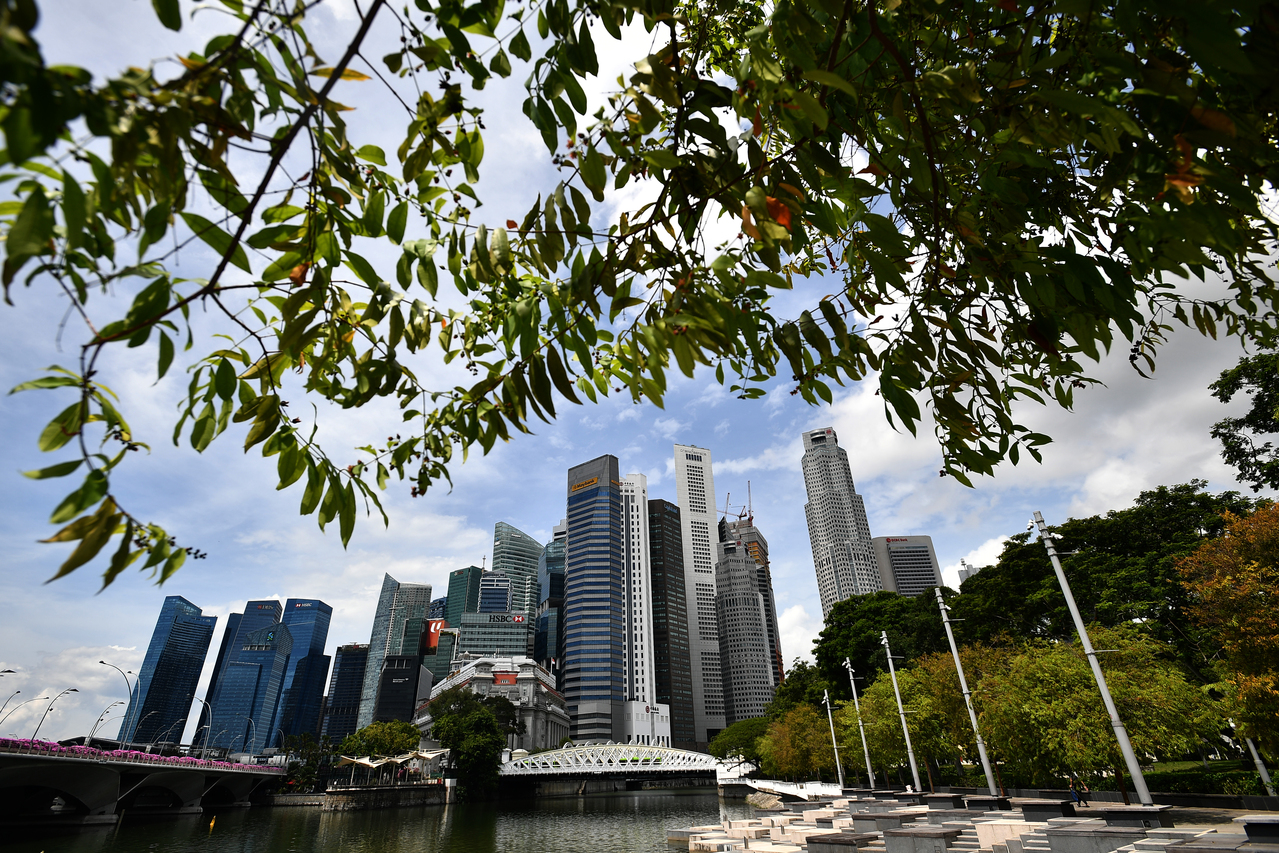Parliament: Singapore is holding the line on economic front despite Covid-19, says Josephine Teo
Sign up now: Get ST's newsletters delivered to your inbox

Workforce Singapore will ramp up the capacity of Professional Conversion Programmes in sectors that are still hiring
ST PHOTO: LIM YAOHUI
SINGAPORE - The Self-Employed Person Income Relief Scheme (Sirs) is expected to pay out close to $1 billion in cash to more than 100,000 self-employed people, with the first payment to be made by end-May.
This was among the figures that Manpower Minister Josephine Teo provided in Parliament on Monday (May 4), as she gave updates on the various support schemes that have been rolled out amid the economic slowdown caused by the coronavirus pandemic.
She said that since the Manpower Ministry (MOM) launched the SGUnited Jobs initiative in March, more than 16,000 immediate job vacancies have been made available - exceeding the initial target of 10,000.
For example, she said, a furloughed flight attendant has found work as a part-time cashier at Prime Supermarket.
The public sector has partnered the Job Security Council of the National Trades Union Congress (NTUC), unions, and employers to place more than 3,000 people from affected sectors in jobs such as safe distancing ambassadors and hospital care ambassadors.
And Workforce Singapore will ramp up the capacity of Professional Conversion Programmes in sectors that are still hiring, such as security, she added.
Through the SkillsFuture Mid-Career Support package, employers can get a hiring incentive of 20 per cent salary support, capped at $6,000 over six months, for new hires aged 40 and above brought on via an eligible skills training programme.
"Whether for self-employed persons or regular employees, finding a job at such times will not be easy," said Mrs Teo.
About 1,800 self-employed people have benefited so far from the Self-Employed Person Training Support Scheme, which is administered by NTUC and provides a $10 hourly training allowance, or $400 for a week-long course.
This may be modest compared with the income they may have earned in the past, said Mrs Teo, but will still help defray their daily expenses as they learn new skills during the downtime.
For example, she said, a 34-year-old freelance school band director, out of work due to the suspension of co-curricular activities, used the downtime to attend seven different courses, including SkillsFuture For Digital Workplace, Setting Up And Running A Business and How To Pitch Like A Pro.
In response to MPs such as Ms Denise Phua (Jalan Besar GRC), Mr Liang Eng Hwa (Holland-Bukit Timah GRC) and Ms Rahayu Mahzam (Jurong GRC), who had expressed concerns about fresh graduates entering a fraught labour market, Mrs Teo said the Government has launched the SGUnited Traineeships Programme.
There are now more than 4,000 traineeship opportunities from 280 organisations available through this programme, which aims to help fresh graduates gain industry experience, build up their resumes and boost their chances of securing jobs in the future.
Graduates can apply from June 1 onwards.
The Government will fund 80 per cent of monthly training allowances for up to 12 months.
"Our young people are absolutely critical to our future," she said.
"We hope more host companies can come forward to help build up the pool of traineeships and give our young graduates the much-needed opportunities to start their careers."
Mrs Teo also outlined existing help schemes for employers and firms, noting that more than $7 billion was paid out to employers in April through the Jobs Support Scheme, which will co-fund the wages of more than 1.9 million local employees.
Another $4 billion will be paid out later this month.
Meanwhile, more than 62,000 employers of foreign workers will receive $675 million in total by May as part of levy waivers and rebates to help them keep supporting their workers. They are expected to get another $675 million in total by July.
Mrs Teo said that not all employers have been impacted to the same degree, and called on those in better financial shape to use the government support to provide their employees with a more generous baseline wage.
"Others which are financially stressed and face poor business prospects should be frank with their unions and employees," she said. "They should work out together how to use the government support to help each other get through this period of difficulty."
She stressed: "One thing is clear: Employers should not act unilaterally and put their employees on prolonged no-pay leave or reduced pay without the employees'consent."
Employees who need help can approach the Tripartite Alliance for Dispute Management for advisory and mediation services, Mrs Teo said in response to a question from Non-Constituency MP Dennis Tan.
Workfare payouts for low-wage workers will total $2.2 billion this year as many of those in essential services, who are continuing to work, receive enhanced payouts of up to $4,000 annually.
In addition, 400,000 workers will get an extra $3,000 each in cash support through the Workfare Special Payment in two tranches, in July and October.
Mrs Teo said: "Economic conditions will remain challenging for some time. Given the strong budgetary support provided by the Finance Ministry, we are holding the line on the economic front.
"We recognise the many efforts by businesses and workers to adjust to the new situation as it evolves, and help one another weather the storm.
"As much as we can, MOM will continue to work with our sister agencies to support businesses and protect livelihoods."
Correction note: This article has been edited to reflect when the first payment is to be made for the Self-Employed Person Income Relief Scheme. We are sorry for the error.


